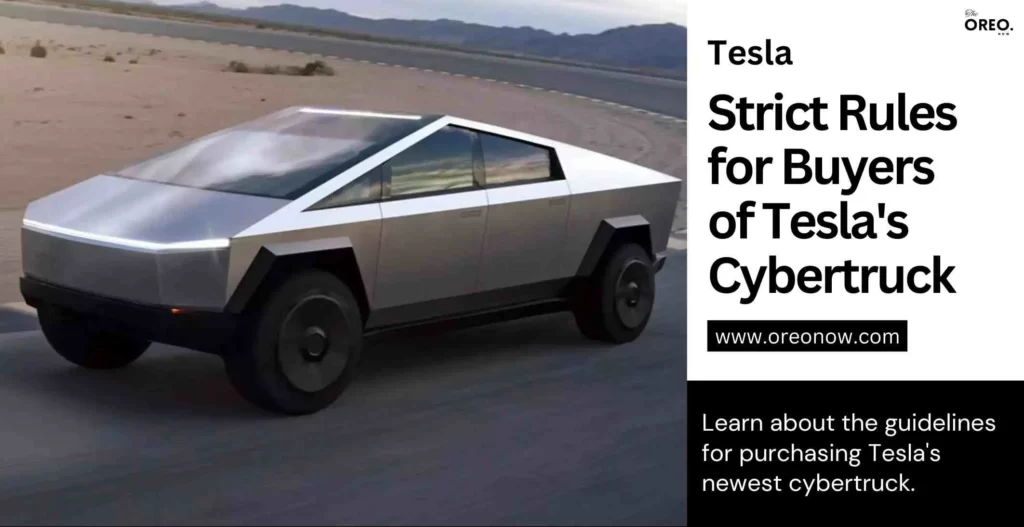Tesla Cybertruck Resale Rules: What Buyers Need to Know

Tesla has imposed strict resale restrictions on the first owners of its Cybertruck electric pickup truck. Want to know more about Tesla Cybertruck Resale Rules?
According to the Cybertruck purchase agreement, owners must first offer to sell their vehicle back to Tesla before reselling it to a third party. If Tesla declines to buy the car, the owner must get formal permission from Tesla before reselling it.
This no-resale policy is believed to be implemented, so that the company can avoid excessive pricing and to guarantee that Cybertrucks are only accessible to buyers who truly wish to acquire them. Some opponents, however, have claimed that this strategy is unfair to customers and violates antitrust rules.
Why Tesla Cybertruck Resale Rules?
According to Tesla, the regulation is set up to “ensure that Cybertrucks are available to customers who genuinely want to own them.” The business is afraid that price gougers would purchase up huge quantities of Cybertrucks and then resale them for a profit, making it impossible for legitimate buyers to buy them.
Tesla also wants to make sure that Cybertrucks are well-maintained and repaired. Tesla can ensure that the vehicles are in good shape and are being properly cared for by forcing owners to first offer to sell their vehicles back to Tesla.
Key Points of Tesla Cybertruck Resale Rules
Cybertruck owners must first offer to sell their vehicle back to Tesla before they can resell it to a third party.
If Tesla declines to purchase the vehicle, the owner must then obtain written consent from Tesla before reselling it.
The no-resale policy is only applicable to the earliest buyers of the Cybertruck.
Tesla has not yet announced any specific resale rules for the Cybertruck. However, CEO Elon Musk has said that the company is considering implementing this rule. This would prohibit owners from reselling their Cybertrucks for a certain period after purchase.
What are the implications for buyers?
The no-resale policy has several consequences for Cybertruck buyers.
- First, it means customers won’t be able to resell their automobiles for a profit for at least a year after purchasing them.
- Second, they must get approval from Tesla before reselling their automobiles to a third party.
Also, the policy might also make financing for Cybertruck owners more difficult. Some lenders may be hesitant to lend to borrowers who are unable to sell their automobiles without the authorization of Tesla.
What are the implications for sellers?
The no-resale clause has a lot of consequences for Cybertruck sellers.
- First, users must be cautious not to purchase automobiles from vendors who have not gotten Tesla’s approval to resell. If customers do purchase a car from a vendor who has not acquired Tesla’s approval, they may have trouble registering or insuring it.
- Second, the no-resale policy may make it harder for vendors to locate purchasers. Some prospective purchasers may be hesitant to purchase a Cybertruck if they know they will require Tesla’s authorization to resell it.
It is yet to be seen whether Tesla will actually sue any Cybertruck owners who violate the resale clause. However, the fact that the clause is in place is a reminder that Tesla is serious about discouraging speculation in its new electric pickup truck.
Overall, the no-resale policy is a significant change from Tesla’s previous resale policies. Tesla is yet to announce if the no-resale policy would apply to all Cybertruck customers or if it will be lifted after the first year of manufacturing. Let’s see how the policy would affect Cybertruck buyers and dealers, till then stay connected with Oreonow.


